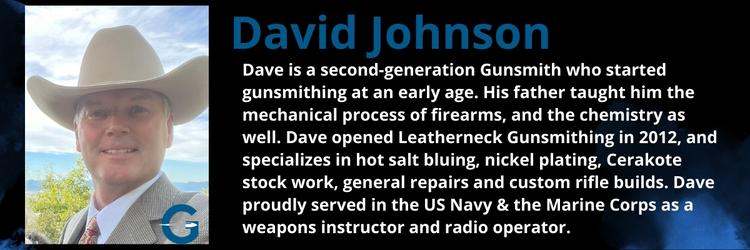How to Become an FFL Dealer
In this month’s blog discussion, we will review the process on obtaining a federal firearms license (FFL). Most people have the perception that getting an FFL is a long, daunting task filled with tons of paperwork. My experience, however, was completely opposite of that. As a matter of fact, I found that it takes less time to get an FFL than it does to get a suppressor. Below are the following steps I took to acquire my FFL, and should be a model for prospective gunsmiths.
FFL Location
The first thing you want to do is make sure that you are allowed to have a gun business at the location where your shop or business will be. It is best that you check with your zoning and planning department for their rules. Some counties or towns won’t allow home-based gun businesses. In the beginning, my shop was in the basement of my house. My county allowed me to have a gun business, but would not allow me to have foot traffic. I met customers at their houses or other places close by. There are no laws prohibiting transferring guns at a location that wasn’t my shop. I have even met state troopers in parking lots to receive their guns for repair.
You also want to check your area’s state laws concerning operating a gun near schools. You can also speak with your local police or sheriff to make sure you are not violating local laws. Remember to keep all your emails and approvals. This way, you can show your ATF agent the documentation when necessary.
FFL Type & Application
There are eleven types of FFL’s that can be applied for. All FFL’s start with the same information, which is required for the Dealer (01) license. Most of the questions on the application are simple and well explained. For the purpose of this discussion, I will explain what is needed for a dealer/gunsmith (01) Federal Firearms License. You will need to get a passport picture taken and have your fingerprints documented on the card provided by the ATF. On the application you will need to give the physical address of your business and hours of operation. Be sure to list at least one hour you are open so the ATF can contact you. All of the forms, applications, and finger print cards can be downloaded from atf.gov. If you have questions, contact your local ATF agent.
Most new applicant’s believe that contacting the ATF will raise a red flag or put you on a list. It’s not that way at all. My experience with my local ATF agents were positive. They are regular people; the local agent who conducted my interview lived in the same town as I did, and our sons went to high school together. Once everything is filled out and signed, send the application into the ATF. You don’t need to send any of your supporting documentation, like local approvals or zoning approvals. However, if you are renting a space to run your business, you will need to list that information on your application.
The Interview
After 30 to 60 days you should receive a call from the local ATF agent to schedule an initial interview. Don’t let the interview stress you out. Some interviews could be different than others, but my interview with the ATF was easier than any of my previous job interviews. During the interview the agent reviewed the ATF website, spoke about current firearm laws and the five deadly sins that an FFL dealer can commit. These sins seem to be a no brainer, but there have been many that don’t follow the rules and have been caught. My interview lasted about an hour. I asked the agent if he needed to see my gun shop and how I plan to keep firearms locked up. He declined and said he didn’t need to see it and said that he did not require the firearms that are in my shop to be locked up or in a safe. His words were, “if your house is broken into and customer firearms are stolen, their (customers) homeowners insurance will cover the guns that were stolen.” However, it is important to report any theft of firearms to your local law enforcement as well as contacting the ATF.
It took three weeks for me to receive my FFL in the mail. Once received, ensure that you make a couple signed copies. One copy will need to be posted in your shop. The other copy needs to be sent to your local law enforcement agency. Also keep a copy of your FFL on your phone or computer. You may need to share a copy of your license with other dealers and suppliers. In addition to your FFL, the ATF will also send other publications that should be visible to your customers.
Five Deadly sins of the ATF
There are five actions that an FFL dealer can commit that can either get your license suspended or revoked. Depending on the severity of the actions a dealer could be criminally prosecuted. Listed below are the top five actions that you need to avoid:
- Refusal to allow an IOI to conduct an inspection
- Transferring a firearm to a prohibited person
- Failing to conduct a required background check
- Falsifying records
- Failing to respond to a trace request
Conclusion
As I stated above, don’t let the three letters A. T. F. scare you. In our current atmosphere, there are many rumors about our 2nd Amendment rights. There are rumors that the ATF are trying to steal our rights, imprison us, or strip us of our freedoms. My local agents and staff do not feel that way. I have spoken to many gun shops in my area about the local agents and they feel the same way about ATF. Having an FFL comes with responsibility. You must maintain records, keep an open-door policy to the ATF, and avoid committing the 5 deadly sins.
Semper Fi!
Written By: David Johnson, Leatherneck Gunsmithing


